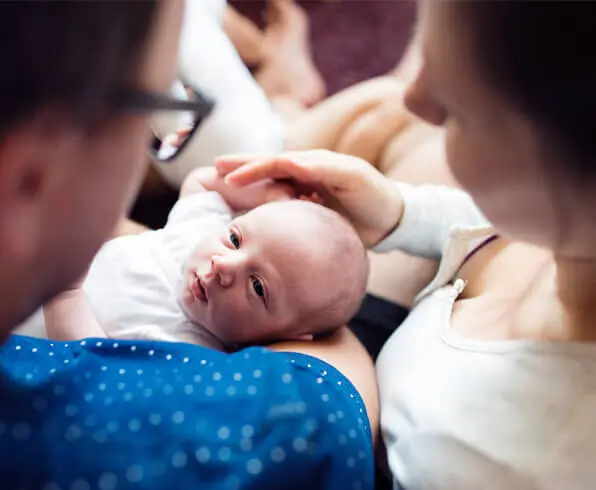Flying After Childbirth
Travelling with a newborn can be both exciting and challenging. Whether visiting family, enjoying a much-needed vacation, or fulfilling other commitments, new mothers often have questions about flying after childbirth. Understanding when it’s safe to fly, managing postpartum recovery and travel, and preparing for the journey can make the experience smoother and more enjoyable.
In this blog, we’ll provide essential postpartum travel tips and insights to help new mothers make informed decisions about flying after childbirth.

When Is It Safe to Fly?
Dr Lanziz Homar will confirm when it is safe to travel after childbirth as the timeline varies based on individual circumstances. For those who had a vaginal delivery without complications, flying is generally safe about 4-6 weeks postpartum. For those recovering from a caesarean delivery, it’s typically recommended to wait 6-8 weeks before flying to allow for adequate healing.
If you experience complications such as severe tearing, postpartum haemorrhage, or infections, it’s crucial to consult Dr Homar to determine when air travel is safe. Additional factors like your recovery timeline, overall health, the length of the flight, and the destination should also be considered when deciding on travel plans.
Consulting with Your Healthcare Provider
Before booking your trip, it’s crucial to discuss your travel plans with Dr Homar. Consider asking questions like:
- When is it safe for me to fly based on my delivery and recovery?
- How can I manage postpartum symptoms during travel?
- Are there any medications or precautions I should take while flying?
- Is it safe to travel with my newborn, and are there vaccinations or health concerns to address?
Dr Lanziz Homar is experienced in guiding new mothers through postpartum recovery and can help you make travel decisions that prioritise your health and safety.
Managing Postpartum Recovery While Travelling
Recovering from childbirth while travelling can be more manageable with some careful planning. Prioritise wearing comfortable, breathable clothing and supportive footwear. Staying hydrated during flights is essential, so drink plenty of water. To reduce the risk of blood clots, particularly on long flights, get up and move around periodically. Pack postpartum essentials, such as sanitary pads, any necessary medications, and a nursing pillow to help with breastfeeding or added comfort. Lastly, be sure to schedule time to rest and relax during your journey to maintain your energy levels.
Travelling with a Newborn
Flying with a newborn requires some preparation to make the experience as smooth as possible. Pack essential items like diapers, wipes, feeding supplies (bottles, formula, or breastfeeding equipment), and comfort items such as blankets or toys. Using lightweight and compact travel gear like baby carriers or collapsible strollers can simplify navigation through airports. Plan for extra time at the airport to account for security checks and inform security staff if they are carrying breast milk or formula.
While some parents find it easier to travel with newborns because they sleep more frequently, others may prefer to wait until their baby is older and more resilient. Always consult your healthcare provider if your baby is under two weeks old, as they may have higher risks associated with travel.
Breastfeeding and Flying
Breastfeeding while flying can be a seamless experience with the right preparation:
- Pumping and Storing Milk: If pumping, bring a travel-friendly pump and storage bags.
- Nursing on the Plane: Dress for easy access, and bring a lightweight cover if you prefer privacy.
- Maintaining Routines: Aim to stick to your regular breastfeeding schedule to avoid engorgement and keep your baby content.
- Airports and Lounges: Many airports offer designated nursing rooms or quiet spaces for breastfeeding mothers.

Safety Considerations for Air Travel
Safety is a key consideration when planning to fly after childbirth. The risk of blood clots, or deep vein thrombosis (DVT), can increase postpartum, so remember to move around and stretch during the flight. Check with the airline about policies regarding travelling with infants, including any specific documentation or seating requirements. Proper planning and preparation can help you address safety concerns and have a stress-free journey.
Preparing for a Positive Travel Experience
Flying after childbirth doesn’t have to be overwhelming. With thoughtful planning, the right postpartum travel tips, and personalised guidance from healthcare professionals like Dr Lanziz Homar at TOAG, you can make your journey comfortable and enjoyable. By addressing safety, recovery, and travel logistics, new mothers can confidently embark on air travel while caring for themselves and their newborns.
For personalised advice on safe travel for new mothers, schedule a consultation with Dr Lanziz Homar and the Toowoomba Obstetrics and Gynaecology team today. Your well-being is our top priority!
